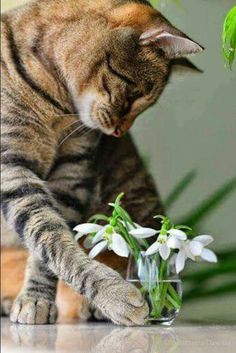Exotic cats have gained acceptance as pets. They are fascinating and beautiful, and there is nothing more interesting than people being drawn to them. Owning an exotic cat is much more complicated than owning a typical house cat. Special needs require an exotic cat owner to have time, money, and special knowledge. Making provisions for appropriate feeding, large accommodations, and an owner with an understanding of their peculiar behavior is another task.
This is not a simple run to the pet store. It can be a lifelong commitment for perhaps a couple of decades and must be planned carefully.
By reading this blog, you will finally understand what exactly it takes to own an exotic cat and then make the correct decision for the animal and, of course, for yourself.
Essential Steps Before Bringing Home an Exotic Cat
First-time owners, especially, need to understand the unique challenges and responsibilities involved. There are several crucial steps to take before acquiring an exotic cat. Exotic cats for sale require specialized care, and responsible ownership starts with thorough preparation.
Pre-Purchase Considerations
Before you even start looking at exotic cats for sale, several crucial factors warrant careful consideration.
Extensive Research
Exotic cat species has unique needs. Learn about their specific dietary requirements, habitat preferences, and enrichment activities. Understand their lifespan and potential health issues. Research their temperament and behavioral traits. This knowledge will help you choose a species compatible with your lifestyle and resources.
Legal Landscape
Exotic pet ownership laws vary significantly. Federal, state, and local regulations dictate which species are legal to own. You may need permits or licenses. Your housing community or homeowner’s association might also have restrictions. Ensure you comply with all applicable laws before acquiring an exotic cat.
Financial Commitment
Having an exotic cat comes with a big expense. Not all species in that category fall at one price line: thousands up to tens of thousands of dollars; building up and maintaining their ideal enclosure would incur more expenditures as well, likewise with a sophisticated diet and probably an intensive veterinary approach for its general and specific petting needs.
Finding a Qualified Veterinarian
Locate a veterinarian experienced with exotic cats before bringing one home. Not all vets have the expertise to treat these unique animals. Discuss potential health concerns and preventative care with your chosen vet. Establish a relationship early on to ensure your cat receives the best possible medical attention.
Setting Up the Right Environment
Enclosure Design and Size
The enclosure must be species-appropriate in size and design. Provide ample space for movement and exploration. Include enrichment items like climbing structures, scratching posts, and hiding places. If applicable and legal, consider providing safe outdoor access.
Environmental Enrichment
Enrichment is vital for an exotic cat’s mental and physical health. Mimic their natural habitat within the enclosure. Offer a variety of toys and puzzles to stimulate their minds. Provide opportunities for social interaction and stimulation, depending on the species’ social needs.
Daily Care and Maintenance
 Proper daily care is essential for your exotic cat’s health and happiness.
Proper daily care is essential for your exotic cat’s health and happiness.
Dietary Requirements
Exotic cats have specific nutritional needs. Some require commercial exotic cat diets, while others may thrive on carefully prepared homemade meals. Consult with your veterinarian to determine the appropriate diet, feeding schedule, and portion control for your cat’s species.
Health and Wellness
Regular veterinary check-ups and vaccinations should be maintained. Use parasite control and prevention techniques. Be observant of sickness symptoms in the exotic cat; visit the vet promptly if need be.
Hygiene and Grooming
Grooming needs vary by species. Some exotic cats require regular brushing, while others need minimal grooming. Litter training can be challenging with certain species. Research effective methods and be patient. Maintain a clean and sanitary environment within the enclosure to prevent health issues.
Ethical Considerations
Owning an exotic cat raises ethical concerns.
Ethical Implications
Approach cautiously the matter of whether exotic cats can ethically be kept in captivity as pets. Their complex needs must be met in captivity, and instincts and behaviors must be incompatible with the domestic environment.
Conservation Concerns
Some exotic cats in the wild are listed as endangered or vulnerable. This puts pressure on wild populations. Make sure that your cat comes from conservation-oriented breeders or rescue organizations.
Alternatives: Domestic Breeds with Exotic Traits
Consider alternative popular choices like Bengal or Savannah cats. Domesticated species are exotic in their characteristics but are generally easier to care for than the larger exotic species.
Their coats are boldly spotted, and their personalities are very much alive. They offer interesting avenues in aesthetics without bearing quite the same ethical and practical considerations. Although they still require special consideration, they are generally much more adaptable to home settings than larger exotics.
Conclusion
With an exotic cat, you’ll find it’s taking more than cuddling a beautiful animal. It’s a lifetime commitment to dedicated care. Exotic cats are a pretty expensive and huge emotional endeavor when it comes to their sustenance or care time. If you are not able to put in great amounts of precious time, not to mention money, into attempting to give that cat everything it needs to comfortably survive and thrive, then it may be time to rethink your choice.
There probably are dozens of really amazing pets, however this might be the one that could suit your lifestyle best. Exotic cats are going to be a rich experience for you if you’ve done your homework and are ready for this journey.



